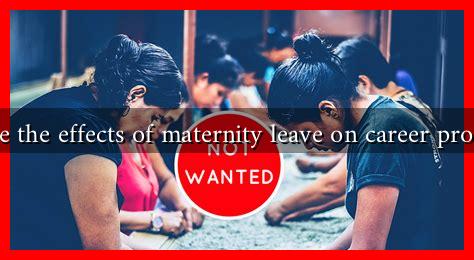-
Table of Contents
- What are the Effects of Maternity Leave on Career Progression?
- The Importance of Maternity Leave
- Positive Effects of Maternity Leave on Career Progression
- Challenges Faced During and After Maternity Leave
- Case Studies and Statistics
- Strategies for Navigating Career Progression Post-Maternity Leave
- Conclusion
What are the Effects of Maternity Leave on Career Progression?
Maternity leave is a critical aspect of workplace policy that affects not only the well-being of new mothers but also their career trajectories. As more women enter the workforce and take on leadership roles, understanding the implications of maternity leave on career progression has become increasingly important. This article explores the multifaceted effects of maternity leave on women’s careers, supported by research, statistics, and real-world examples.
The Importance of Maternity Leave
Maternity leave provides new mothers with the necessary time to recover from childbirth and bond with their newborns. However, the duration and quality of maternity leave can vary significantly across different countries and organizations. According to the World Health Organization, maternity leave is essential for both maternal and infant health, but its impact extends beyond health considerations to career outcomes.
Positive Effects of Maternity Leave on Career Progression
While some may argue that taking maternity leave can hinder career advancement, research indicates several positive effects:
- Retention of Talent: Companies that offer generous maternity leave policies often experience higher employee retention rates. A study by the Institute for Women’s Policy Research found that women who take maternity leave are more likely to return to their jobs, reducing turnover costs for employers.
- Increased Job Satisfaction: Employees who feel supported during maternity leave are more likely to report higher job satisfaction. This satisfaction can translate into increased productivity and loyalty, benefiting both the employee and the employer.
- Enhanced Company Reputation: Organizations that prioritize family-friendly policies often attract top talent. A positive reputation for supporting working mothers can enhance a company’s brand and make it a desirable place to work.
Challenges Faced During and After Maternity Leave
Despite the benefits, maternity leave can also present challenges that may impact career progression:
- Career Interruptions: Taking time off can lead to gaps in employment, which may be viewed unfavorably by some employers. This can hinder opportunities for promotions or raises.
- Workplace Bias: Women who take maternity leave may face implicit bias from colleagues and supervisors. Research from the American Psychological Association indicates that mothers are often perceived as less committed to their jobs, which can affect their career advancement.
- Skill Atrophy: Extended time away from work can lead to a decline in skills and knowledge, making it challenging for returning mothers to reintegrate into their roles effectively.
Case Studies and Statistics
Several case studies highlight the impact of maternity leave on career progression:
- Sweden: Sweden offers one of the most generous parental leave policies in the world, allowing parents to share 480 days of paid leave. Research shows that women in Sweden experience less career stagnation compared to those in countries with limited maternity leave.
- United States: In the U.S., where maternity leave policies are less comprehensive, women often face significant challenges. According to a report by the National Partnership for Women & Families, nearly 1 in 4 women return to work within two weeks of giving birth due to inadequate leave policies.
Strategies for Navigating Career Progression Post-Maternity Leave
To mitigate the potential negative effects of maternity leave on career progression, new mothers can adopt several strategies:
- Maintain Communication: Keeping in touch with colleagues and supervisors during maternity leave can help ease the transition back to work.
- Seek Flexible Work Arrangements: Many companies offer flexible work options that can help balance work and family responsibilities.
- Focus on Professional Development: Engaging in online courses or networking during maternity leave can help maintain skills and connections.
Conclusion
The effects of maternity leave on career progression are complex and multifaceted. While maternity leave can present challenges such as career interruptions and workplace bias, it also offers significant benefits, including increased job satisfaction and talent retention. By understanding these dynamics and implementing strategies to navigate the transition, new mothers can continue to thrive in their careers. As organizations increasingly recognize the importance of supporting working parents, the landscape of maternity leave and its impact on career progression is likely to evolve positively.
For more information on maternity leave policies and their implications, you can visit the National Partnership for Women & Families.

